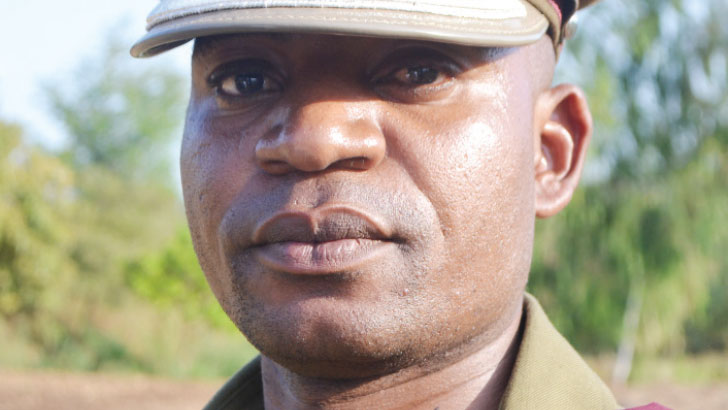‘We lack high-tech security gadgets’
Public Appointments Committee (PAC) of Parliament recently summoned chief commissioner of prisons Wandika Phiri to explain why some prisoners are stealing from the public using some mobile money platforms. EDWIN NYIRONGO spoke to prisons spokesperson CHIMWEMWE SHABA about the matter and how the Malawi Prisons Service intends to curb the vice. Excerpts:
How and why are prisoners allowed to keep phones?

Strictly speaking, prisoners are not allowed to keep phones. What is happening is because we lack high-tech security gadgets such as door scanners and network jamming machines to prevent entry of phones into the cells. Currently, we do manual checking, which is not always perfect.
Do you have officers who can stop this malpractice?
We have so many professional officers. For your information, apart from the phones that find their way inside prisons, so many phones are retrieved from prisoners during searches by these professional officers. Unscrupulous officers who smuggle phones into prisons are also apprehended and disciplined accordingly.
Isn’t what is happening a sign of laxity?
There is no laxity. The truth is that manual search breeds fatigue that leads to ineffectiveness. What I am saying is that at times officers become exhausted due to the overwhelming search work at our entrances. This is also the time some unscrupulous officers take advantage of the situation.
If phones find their way into prison, the fear is dangerous weapons, such as guns also do?
We may not dispute that. Unprofessional employees are a threat to any institution. For us, the unprofessional conduct of some officers is really a threat to prisons security.
We hear some prison officers are the one whose IDs are used for prisoners to secure many Simcards. Should we say the criminal act is that difficult to detect and contain?
The criminal act is not that widespread that it cannot be contained. That is why as a department, we made a number of suggestions to both the Parliamentary Committee on Media, Information and Communications and PAC on how to contain the vice. The suggestions include the need to support automation of prison information management system and installing security gadgets (scanning machines). Others are construction of a maximum security prison at Chitedze in Lilongwe as the current ones fall short of standards and, also support the lobby with service providers to introduce monitored toll lines in prisons for inmates’ communication with outsiders.
. There are reports that many officers are involved in the criminal acts, but you seem to only act on those that come into public domain?
That is not true. We have been proactive in our efforts to curb the vice. There are a number of officers who have been interdicted and others dismissed from the service without any external influence, but as a result of our internal intelligence. Zomba Central Prison alone has this year seen seven officers interdicted and placed under charge while two were dismissed from the service after being caught and suspected of aiding prisoners to smuggle prohibited articles such as phones into prison.
When such prisoners are caught, what happens to them?
They are subjected to some penalties, such as loss of remission of their sentences.
By the way, where do these prisoners charge their phones?
We do not have sockets in the cells. But of late, we realised that some prisoners were charging their phones using rewind or solar-powered radios. They could make their connections to charge their pones as the radio is also charging. Others could charge using bulbs in the cells. But we have addressed all that.
How do you intend to stop the practice of inmates stealing from the public using Mpamba or Airtel Money?
Among other measures, we have intensified search of prohibited articles; subjecting perpetrators to criminal proceeding as a deterrent to others; cooperating with police to arrest perpetrators that smuggle prohibited articles such as phones; transfer of prisoners involved to medium security prisons, where it is more difficult to access phones and transfer of officers who have overstayed at major security prisons. It has been established that those officers that have overstayed at one prison develop a retrogressive culture that resists change. There is also collaboration with service providers to install call barring machines. In 2016, we attempted to install a network jamming machine at Zomba Central Prison to stop influx of phones but it transpired that the machine was only effective on one angle, thus needing three other sets to complete the system. Currently, a call barring machine funded by TNM has been installed at Zomba Central Prison though yet to be configured to make it operational. Airtel has also committed to install a call barring machine.





